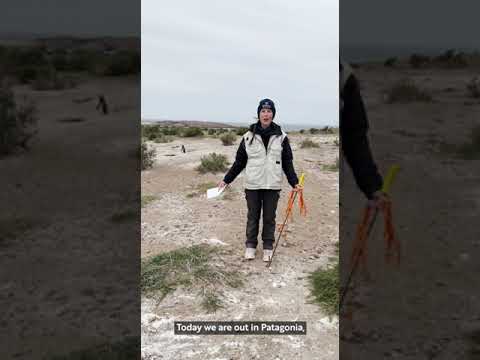– Overview of Patagonia Penguin Research
– The Importance of Conservation Efforts
– Challenges in Penguin Conservation
– Contributions and Future Directions of Patagonia Penguin Research
Patagonia Penguin Research has provided critical insights into the behavior, ecology, and conservation needs of penguin species living at the southern tip of South America. This work is essential for informing strategies to protect these charismatic birds in a rapidly changing environment. Through dedicated observation, tagging, and monitoring programs, researchers have gathered valuable data on penguin migration patterns, breeding success, and diet preferences. This research is vital for understanding how climate change, human activity, and natural predators impact penguin populations.
Conservation efforts for Patagonia penguins are crucial for several reasons. Penguins play a significant role in the marine ecosystem, serving as predators and prey. Their health and numbers can indicate the overall health of their habitat. Additionally, penguins are of considerable interest to eco-tourism, a significant income source for many regions in Patagonia. Effective conservation strategies include establishing protected marine areas, monitoring penguin populations, rehabilitating injured individuals, and regulating tourism to minimize disturbances during breeding seasons.
Penguin conservation in Patagonia faces numerous challenges. Climate change has resulted in alterations to penguins’ natural habitats, affecting their food sources and breeding sites. Overfishing has depleted their primary food, forcing them to travel further afield and exposing them to higher risks from predators and exhaustion. Pollution, especially plastic waste and oil spills, poses severe threats to their health and the cleanliness of their habitats—moreover, direct human disturbances, such as unregulated tourism and habitat encroachment, further stress penguin colonies.
The contributions of Patagonia Penguin Research are multifaceted. Researchers have identified critical feeding and breeding grounds that require protection by tracking penguin movements. Studies on the impact of environmental changes on penguin populations have spurred action from governmental and non-governmental organizations to mitigate these effects, promoting sustainable fishing practices and pollution control measures. Furthermore, by engaging the public and stakeholders in their findings, these researchers have raised awareness about the importance of conservation efforts and encouraged community involvement in protecting these species.
Looking ahead, the future directions of Patagonia Penguin Research will likely focus on adapting conservation strategies to the anticipated impacts of climate change, expanding the scope of monitored penguin populations to include lesser-known species, and enhancing efforts to mitigate human impact. Innovations in tracking technology and data analysis will improve the precision and scope of research findings, offering deeper insights into penguin biology and ecology. Collaboration with international conservation bodies will also be crucial in advocating for global actions to address threats to penguin populations.
Patagonia Penguin Research not only underscores these birds’ beauty and ecological significance but also highlights the pressing need to protect them. By expanding our knowledge and refining conservation techniques, we can help ensure a future where penguins continue to thrive in their native habitats. This endeavor requires continuous support, funding, and public engagement, uniting efforts across different sectors to safeguard one of Patagonia’s most iconic inhabitants.
*****
Source Description
Join Lana and Lauren from the field in Patagonia as they talk about the research we are helping to conduct with Magellanic penguins in the Wild.

